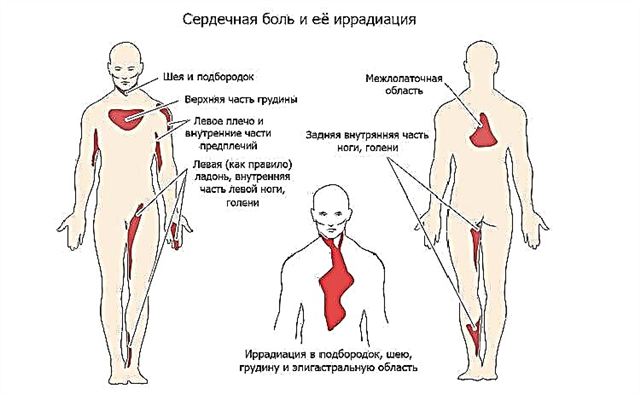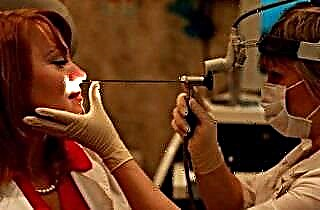Ischemic cardiomyopathy (ICM) is a disease characterized by gradual expansion of the left ventricular (LV) cavity and the development of heart failure. It occurs against the background of chronic or acute myocardial ischemia.
Who develops the disease
ICMP develops in about 5-8% of people with coronary artery disease (CHD). It affects people aged 45-55 years. It is noteworthy that 90% of all patients are men.
It was previously thought that ischemic cardiomyopathy occurs only in those who have had myocardial infarction. Numerous scientific studies, the study of the state of the myocardium using modern diagnostic methods have made it possible to refute this fact. It turned out that ICMP is also present in people suffering from ischemic heart disease in the form of angina pectoris (pressing / squeezing / burning pain behind the sternum during exercise), but who have never suffered a heart attack. Moreover, such patients turned out to be the overwhelming majority.
Changes in the heart muscle
What happens to the heart in ischemic cardiopathy? The organ gradually increases in size due to the expansion of the left ventricle (LV), its walls become thinner, and the ability to pump blood decreases. Myocardial cells are damaged, and at the site of dead cardiomyocytes (in the case of a heart attack), scar connective tissue appears, which creates conditions for the occurrence of arrhythmias. The result is chronic heart failure (CHF).
The pathophysiological mechanism of ICMP development is based on a process called hibernation - switching the work of the heart muscle to an energy-saving mode. Due to atherosclerotic narrowing of the coronary arteries, the myocardium does not receive enough oxygen. In conditions of ischemia, the organ deliberately reduces the force of contractions in order to reduce the need for nutrition. This is a kind of defense mechanism - this is how the heart protects itself from a heart attack.

Important symptoms
With the development of ICMP, patients with severe pain in the heart begin to notice a weakening of their intensity. Meanwhile, new signs appear:
- shortness of breath that gets worse over time;
- weakness after the usual amount of work;
- swelling of the ankles and lower legs;
- a feeling of heaviness or pulling pain in the right hypochondrium due to enlargement of the liver due to stagnation.
Often, people with ICMP have heart rhythm disturbances, which are manifested by a feeling of rapid heartbeat, a feeling of “fading” of the heart. They can be permanent or paroxysmal. During seizures, blood pressure may decrease, resulting in dizziness, darkening of the eyes, and sometimes short-term loss of consciousness. These symptoms are caused by decreased blood supply to the brain.
The most common cause of death in ischemic cardiomyopathy is progressive chronic heart failure. Less often, stroke and heart rhythm disturbances are fatal.
How to confirm the diagnosis
- a biochemical blood test is a mandatory study. Almost all people with ICM have high blood cholesterol levels. It is also necessary to determine the concentration of glucose to detect diabetes mellitus;
- electrocardiography (ECG) - a specific sign is a decrease in the ST segment below the isoline, indicating the presence of myocardial ischemia. However, I often fail to capture this change on a conventional ECG, so I record a tape of a person during physical activity (riding a stationary bike, walking or jogging on a treadmill). This increases myocardial oxygen demand, which is reflected in the cardiogram. Also, during the registration of a stress cardiogram, arrhythmias may appear (tachycardia, atrial fibrillation, atrioventricular or intraventricular blockade, etc.);
- echocardiography - ultrasound of the heart clearly shows the degree of expansion of the LV cavity, "non-working" areas of the myocardium (a sign of a heart attack). Particular attention is paid to the contractile function of the heart, i.e. ability to pump blood. For this, an indicator such as the LV ejection fraction is assessed. In patients with ICMP, it is below 55%. Another specific sign is the absence of thickening of the LV wall at the time of systole;
- coronary angiography evaluates the patency of the vessels supplying the myocardium (coronary arteries). It is thanks to this test that it is possible to accurately confirm that the development of ICMP is caused by cardiac ischemia. The main criterion is the narrowing of the lumen of one of the arteries by more than 50%.

Differences between ICMP and DCMP
Clinically, ischemic cardiomyopathy is very similar to dilated cardiomyopathy. For a more visual representation of the differences between these diseases, I will give the information below.
Table: distinctive features of ICMP from DCMP
| Sign | ICMP | DCMP |
| Patient age | Average 45-55 years | 30-40 years old, may develop in children |
| The main reason | Cardiac ischemia | Genetic mutations; Postponed viral myocarditis; Alcoholism |
| Risk factors | Elderly age; Smoking; Diabetes; Obesity | Presence of DCM in close relatives |
| Development mechanism | Adaptation of the myocardium to conditions of ischemia | Pathological expansion of the chambers of the heart |
| Expansion of the chambers of the heart | Only the LV is largely enlarged. | Very pronounced expansion of all chambers of the heart |
| The severity of the clinical picture | Slow development of CHF symptoms | Rapid development of CHF symptoms |
| Arrhythmia frequency | 30% | Almost 100% |
| Thrombosis frequency | 20-40% | 60-70% |
| Reversibility of changes | Partially reversible | Irreversible |
Drug treatment
For the treatment of ischemic cardiomyopathy, I use:
- beta-blockers - Atenolol, Bisoprolol;
- ACE inhibitors - Perindopril, Ramipril;
- sartans - Candesartan, Telmisartan (for intolerance to ACE inhibitors);
- aldosterone antagonists - Spironolactone;
- diuretics - Indapamide, Torasemide (with severe congestion);
- nitrates - Isosorbide dinitrate (only in the presence of pain attacks).
Doctor's advice: what medications you need to drink constantly and why
In addition to the above medications, the patient in any case constantly needs to take the following medications:
- antiplatelet agents (acetylsalicylic acid) - prevent blood clots, thereby reducing the risk of myocardial infarction;
- statins (Atorvastatin, Rosuvastatin) - drugs that lower blood cholesterol levels;
- anticoagulants (Warfarin, Dabigatran) - blood thinning drugs, they are necessary for the prevention of stroke in patients who have developed atrial fibrillation;
- hypoglycemic agents (Metformin, Glibenclamide) - if a high blood glucose level was detected in a biochemical blood test, I refer the patient to an endocrinologist to confirm diabetes mellitus, prescribe medications and a special diet;
Do the surgery
Revascularization surgery, i.e. restoration of blood supply to the myocardium is the most effective way to treat ICMP. Thanks to them, it is possible not only to prevent the progression of the disease, but also to improve the contractile function of the left ventricle.
There are 2 main methods of surgical intervention for ICMP:
- stenting - placing a metal cylinder (stent) at the site of stenosis, which expands the lumen of the artery;
- coronary artery bypass grafting - the creation of an artificial communication (anastomosis) between the aorta and the coronary artery, due to which the blood goes bypassing the narrowed areas of the vessels.
Forecast
If the disease is recognized in time, the right medication is chosen and the revascularization operation is performed, then the prognosis for ischemic cardiomyopathy is very good. In advanced cases, despite the treatment, the mortality rate reaches 40-50%. Therefore, the most important thing is to see a doctor on time.



